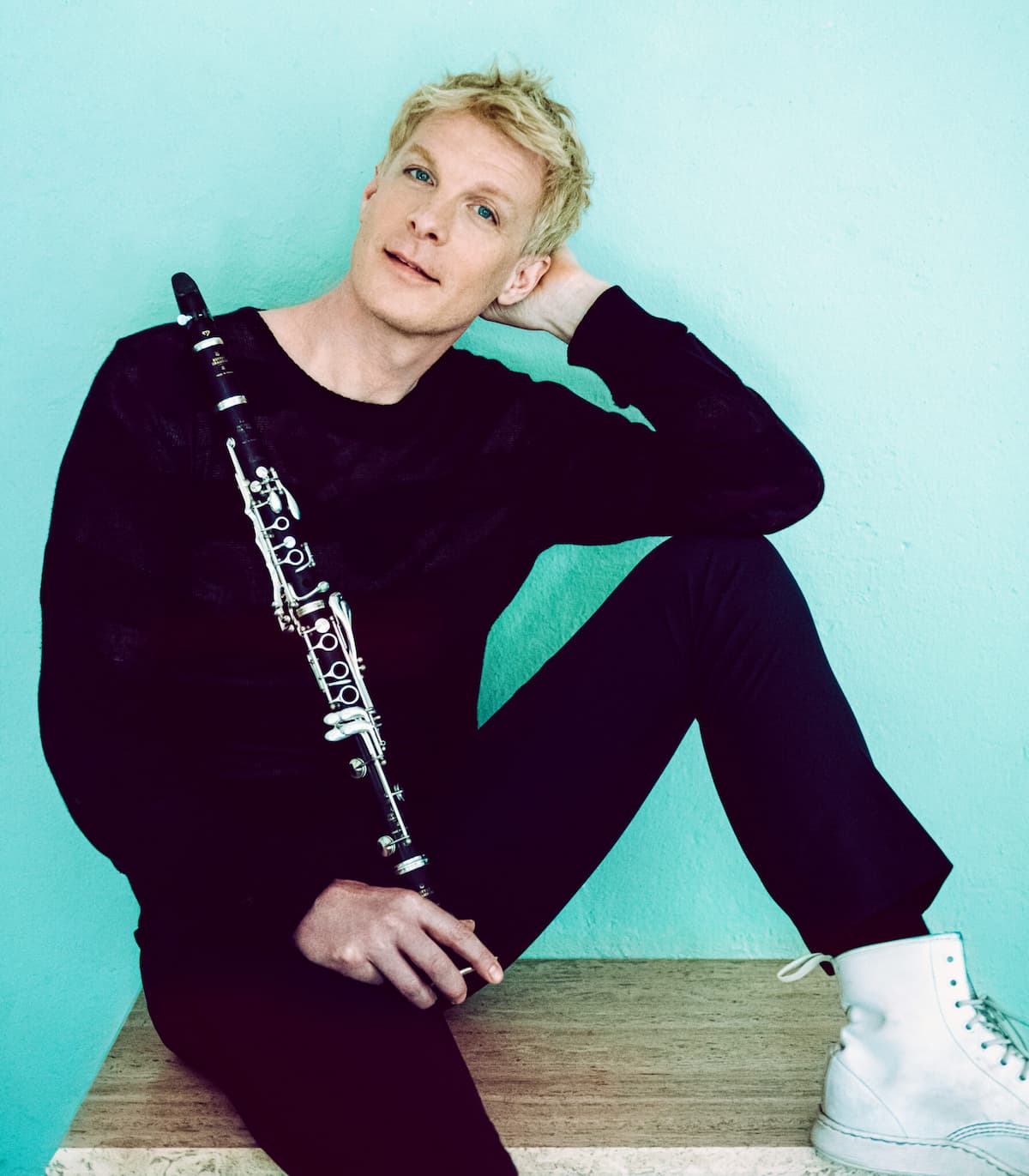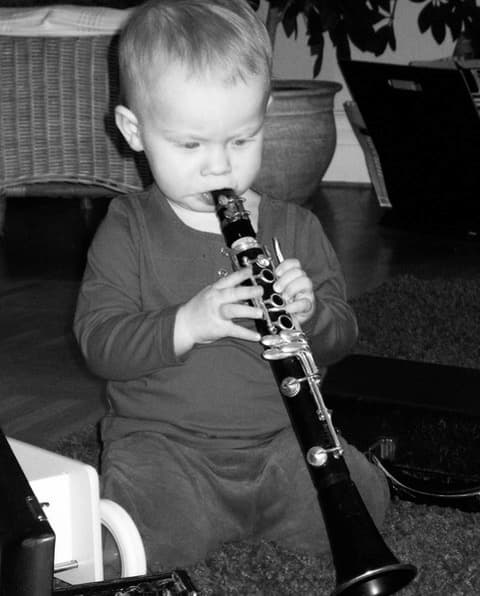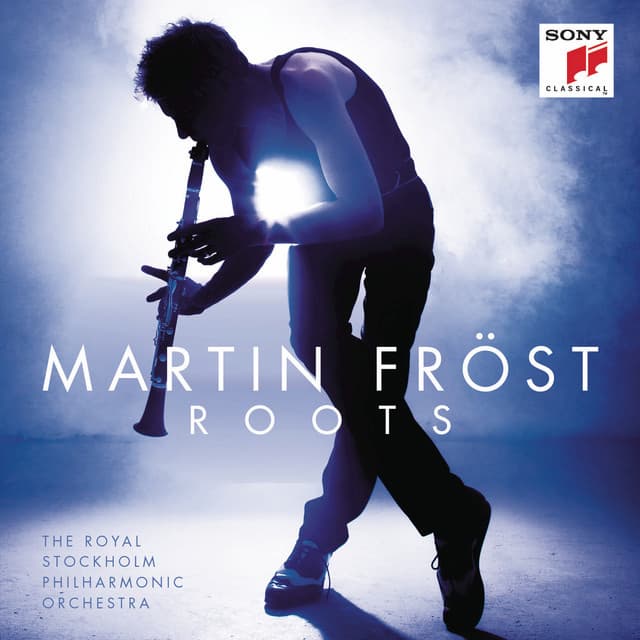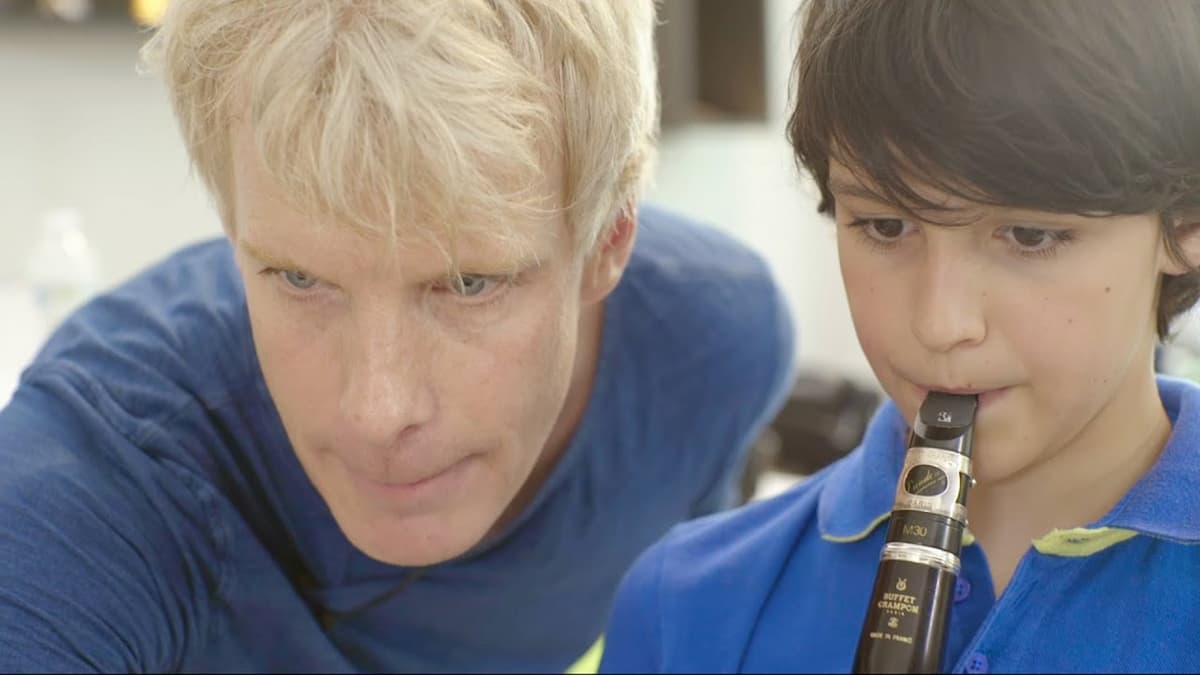Clarinet superstar Martin Fröst has been described as having “a virtuosity and a musicianship unsurpassed by any clarinettist, perhaps any instrumentalist, in recent memory.” In 2014 he received the Léonie Sonning Music Prize, one of the world’s highest musical honours, joining an illustrious list of recipients that include Igor Stravinsky and Sir Simon Rattle. While his repertoire encompasses mainstream and contemporary clarinet works, he is constantly challenging and reshaping the classical music arena.
Martin Fröst Performs Mozart’s Clarinet Concerto in A Major, K. 622, “Adagio”
Growing Up

Martin Fröst © Jonas Holthaus/Sony
Martin Fröst was born on 14 December 1970 in Uppsala, Sweden, and he grew up in a small town called Sollefteå ans Sundsvall in the northern part of the country. From his earliest memories, he was surrounded by music. Both his parents were medical doctors and passionate amateur musicians. His father was a violist, and his mother a violinist, and there was plenty of chamber music played in the household.
His earliest memories relate to his mother singing sad songs. “This is typical,” he explained, “as the bedtime songs I heard were all sad, but they’re beautiful as well.” He is the middle of three brothers, and his parents never forced them into making music. The three brothers kept fighting all the time and played football, “but when we played or sang together, all that fighting stopped.”
Martin Fröst Plays Fröst’s Fantasia
First Study

Martin Fröst as a little boy
Fröst started playing the violin at the age of six and also dabbled on the cello. But when his father brought home a Jack Brymer recording of the Mozart concerto, he fell in love with the clarinet. His father quickly bought him a clarinet, and Fröst learned the second movement quite fast. Fröst still maintains that “Mozart was really the one who blew life into the instrument. With the second movement, he invented the soul of the clarinet.”
By age 15, Fröst had decided that he wanted to be a soloist, and he moved to Stockholm to study at the Royal College of Music. He felt somewhat isolated during his time in Stockholm, but he lived and breathed the clarinet and music for 6 years. His teachers included Solve Kingstedt, the principal clarinet of the Stockholm Philharmonic, and Kjell-Inge Stevensson, and he played his first concerto performance at the age of 17 with the Swedish Royal Academy of Music Orchestra.
Johannes Brahms: Clarinet Quintet in B Minor, Op. 115 (Martin Fröst, clarinet; Janine Jansen, violin; Boris Brovtsyn, violin; Maxim Ryanov, viola; Torleif Thedéen, cello)
Studying Under Hans Deinzer

Martin Fröst: Roots
Around age 20, Fröst went to Germany to study with the famous virtuoso and pedagogue Hans Deinzer, who is called “the Pope of the clarinet.” He had taught Sabine Meyer, Andrew Marriner, and an entire generation of Central European players. Deinzer was a practitioner of Buddhism, so every lesson was “like a meditation.” As Fröst remembers, “he could stay on one note for an hour and take 45 minutes on a single phrase in the Mozart Concerto.”
For Fröst, this turned out to be a fabulous experience as he learned how to practice and how to listen. Fröst relates, “When I worked for 45 minutes, on, say, legato, and everything was the colour that we wanted to hear and so on, suddenly he said “Did you hear that?” And then, suddenly, my ear was working – registering what I had just done. And then you step up to the next level. And also, we studied a lot of original scores from the start.”
Wolfgang Amadeus Mozart: Clarinet Quintet in A Major, K. 581 (Martin Fröst, clarinet; Vertavo String Quartet)
A New Path

Martin Fröst teaching
Fröst received multiple awards and won several competitions, but as he explained in an interview with a German magazine, “I have actually played almost everything that is right and good for the clarinet. By the time I recorded Mozart’s clarinet concerto, the eternal calling card of my guild alongside Weber‘s solo works, for the second time, it was clear to me that there had to be something else. I always imagined that I was 85 years old and not very proud that I had performed 1,500 performances of Carl Maria von Weber’s Clarinet Concerto. A horror vision! So I thought about it and, after twenty years, got involved a little bit with the Wild Side.”
Fröst is passionate about changing the direction of classical music. In his opinion, “we have to take a step forward to find a way into the future, to escape the performative corset.” Fröst aims to train young people to be composers, conductors, improvisers, and performers, all in one person. And as he is changing his way of performing to open doors for others, he contends that “young musicians must have the chance to open up and be open-minded to educate themselves on so many other levels; to dip into styles that they haven’t experienced yet.” And he certainly wants to change the culture of pure comparison that is “killing classical music and all creativity.”
For more of the best in classical music, sign up for our E-Newsletter
